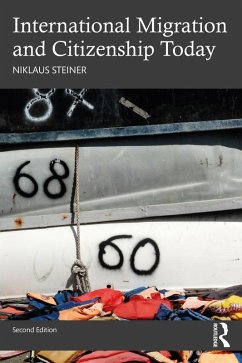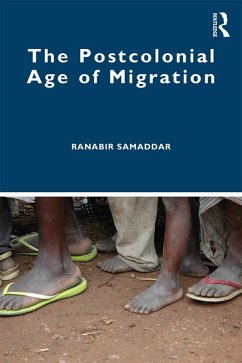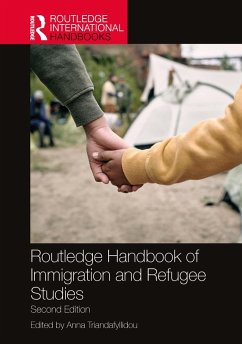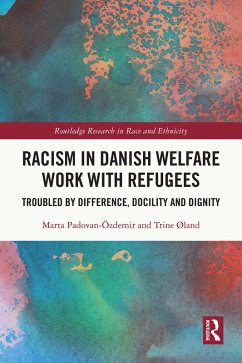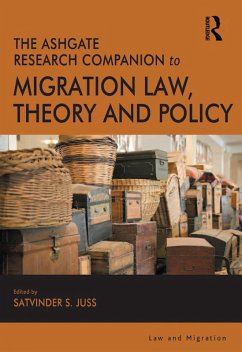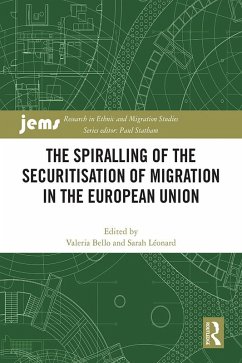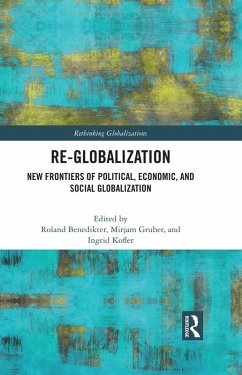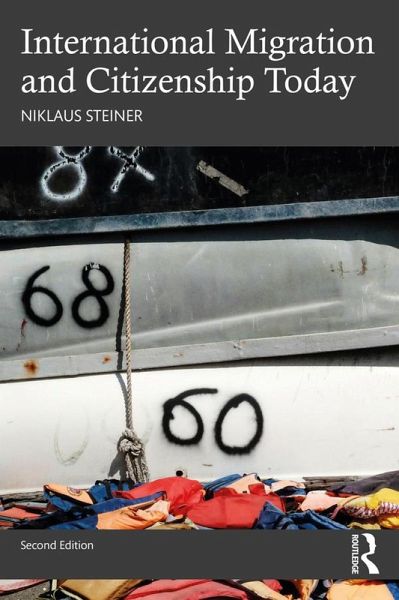
International Migration and Citizenship Today (eBook, ePUB)
Versandkostenfrei!
Sofort per Download lieferbar
34,95 €
inkl. MwSt.
Weitere Ausgaben:

PAYBACK Punkte
17 °P sammeln!
This completely revised and updated textbook explores the moral, economic, political, and cultural dimensions of the movement of people across international borders. In style and substance, it is designed to spark thoughtful discussions and to challenge readers to draw their own conclusions to questions such as how should democracies balance the rights of immigrants with those of citizens? What exactly constitutes persecution and how should we define a refugee? How should democracies allocate citizenship? Can and should a distinction be made between voluntary and forced migration, and does one...
This completely revised and updated textbook explores the moral, economic, political, and cultural dimensions of the movement of people across international borders. In style and substance, it is designed to spark thoughtful discussions and to challenge readers to draw their own conclusions to questions such as how should democracies balance the rights of immigrants with those of citizens? What exactly constitutes persecution and how should we define a refugee? How should democracies allocate citizenship? Can and should a distinction be made between voluntary and forced migration, and does one group of migrants deserve admission more than the other? What does a reasonable border policy look like? The rise of populism, the vote for Brexit, and the unprecedented flow of refugees around the world are all evidence that these questions remain highly salient, controversial, and unresolved.
The content has been thoroughly updated to cover:
. Migration into Europe since 2015.
. Climate change as a driver of migration and the concept of environmental refugees.
. Unaccompanied minors fleeing gang violence, asylum for victims of domestic violence, family separation policies, and the building of a wall on the U.S./Mexican border.
. The controversies surrounding the Danish cartoons, Charlie Hebdo, and hijabs as examples of the tensions in liberal democracies between free speech, individual freedom, religious expressions, and minority rights.
. The Dream Act and Deferred Action for Childhood Arrivals (DACA).
. Demographic shifts and the debates around multiculturalism and diversity.
. Guest-worker programs as alternatives to admitting immigrants.
Intended as the main text for undergraduate classes on international migration, the book will also appeal to broad survey courses on world politics, comparative politics, international relations, global history, and more specialized courses on human rights, citizenship, and nationalism.
The content has been thoroughly updated to cover:
. Migration into Europe since 2015.
. Climate change as a driver of migration and the concept of environmental refugees.
. Unaccompanied minors fleeing gang violence, asylum for victims of domestic violence, family separation policies, and the building of a wall on the U.S./Mexican border.
. The controversies surrounding the Danish cartoons, Charlie Hebdo, and hijabs as examples of the tensions in liberal democracies between free speech, individual freedom, religious expressions, and minority rights.
. The Dream Act and Deferred Action for Childhood Arrivals (DACA).
. Demographic shifts and the debates around multiculturalism and diversity.
. Guest-worker programs as alternatives to admitting immigrants.
Intended as the main text for undergraduate classes on international migration, the book will also appeal to broad survey courses on world politics, comparative politics, international relations, global history, and more specialized courses on human rights, citizenship, and nationalism.
Dieser Download kann aus rechtlichen Gründen nur mit Rechnungsadresse in A, B, BG, CY, CZ, D, DK, EW, E, FIN, F, GR, HR, H, IRL, I, LT, L, LR, M, NL, PL, P, R, S, SLO, SK ausgeliefert werden.




